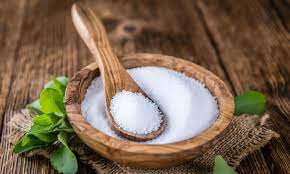Zero-calorie sweeteners offer consumers a sweet flavor without any calories that come with generic calorie sweeteners like sugar. The zero-calorie sweeteners are gaining immense popularity as they have emerged as a healthier substitute to calories sugars in a wide range of food and beverage products.
Nutrition and diet are vital factors for the maintenance of good health throughout the life course. There is a large-scale utilization of sweeteners by consumers as well as on the commercial level. The excessive utilization of sweeteners now is linked with various issues like obesity and diabetes. Diabetes has emerged as a serious health complication across the globe. Therefore, there is a significant spike in the popularity of specialty formulations like zero-calorie sweeteners. Transforming lifestyle along with growing unhealthy eating habits will steer the growth of the global zero-calorie sweeteners market.
The growing working population along with sedentary working life is significantly fuelling the consumption of snacks and products with additives, which in turn is encouraging the growth of health disorders like obesity. However, calorie-free products like sugar-free beverages and candies are emerging as a positive factor for the growth of the market globally. There is a surge in the number of health-conscious people along with wide acceptance of zero-calorie sweeteners for preparing confectionery and bakery products. Also, the growing concern regarding the clean label solutions and ingredients in several regions including the US is also likely to create several lucrative growth opportunities in the global zero-calorie sweeteners market.
The global zero-calorie sweeteners market can be segmented into distribution channel, application, product type, and region.
By distribution channels, the market can be segmented into indirect and direct channels.
By application, the market can be segmented into beverages, confectionery, bakery products, dairy products, and others.
By product type, the market can be segmented into neotame, ace-K, stevia, cyclamate, saccharin, aspartame, sucralose, and others. The stevia segment accounts for the largest share in the global zero-calorie sweeteners market due to the fact that it offers several health benefits.
North America accounts for the largest share in the global zero-calorie sweeteners market due to the presence of a strong consumer base in the region. Furthermore, the region has high incidences of diabetes and obesity, which in turn will also accentuate the growth of the regional market. Also, the presence of prominent leaders in the region is also likely to promulgate the growth of the regional market in the forthcoming years.
Asia Pacific is expected to be the fastest-growing region in the global zero-calorie sweeteners market due to the growing disposable income of the people in the region along with rapid urbanization. Furthermore, the rising investments from key players to launch innovative products in the market will also encourage the growth of the regional market.
Some of the significant players in the global zero-calorie sweeteners market are LB Industries Pvt Ltd, JK Sucralose Inc., Ajinomoto Co., Inc., Xinghua Green Biological Preparation, Sweetlife AG, Sweet Green Fields, Sunwin Stevia International, Ingredion, Pyure Brands, Janus Life Sciences, GLG Leading Life Technologies, NOW Foods, Domino Foods, Ajinomoto, Cumberland Packing Corporation, SweetLeaf, Tate & Lyle, and Cargill. To cite, PepsiCo, Inc. and Coca-Cola began incorporating stevia in their beverages for facilitating no side effects on consumer’s health.
